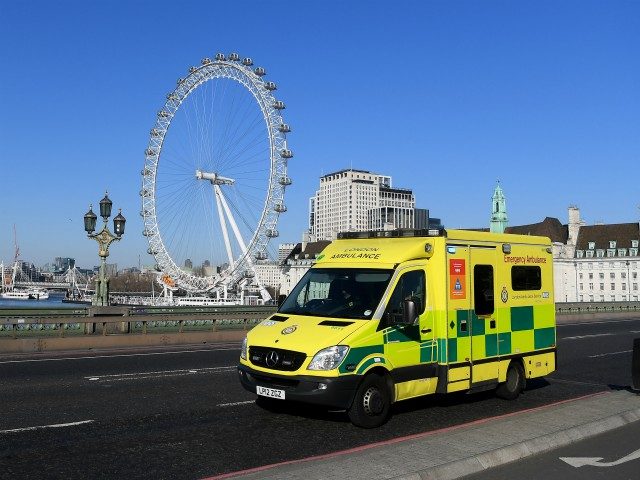The family of an 11-year-old cancer sufferer and an autistic support group have been pressured to sign ‘do not resuscitate’ (DNR) forms during the coronavirus pandemic.
Ilhan Ates-Suddes from Scarborough suffers from a rare cancer, called a Desmoid tumour, in his neck and jaw. His mother Margaret expressed shock when the family’s general practitioner asked the family if they wanted to sign a DNR form in case he contracts Chinese coronavirus.
Calling the request inhumane, his mother said in comments reported by The Times: “Ilhan has fought cancer for seven years. There’s no way I’m going to let anyone give up on him.”
“They asked if we wanted a DNR if Ilhan had to be taken to hospital. When I called to complain, one of the GPs said there had been a mistake. But how on earth can someone see an 11-year-old boy’s age on a computer and think that it is responsible behaviour?” the mother said.
In another case reported in The Sun on Sunday, a GP surgery in Colchester, Essex, asked a 16-year-old with connective tissue disorder Ehlers-Danlos and asthma if he wanted to sign a DNR in case he caught coronavirus.
“He is about to sit his A-levels. How can his life be worth nothing? He thinks the Government wants him dead,” the teen boy’s mother said.
In recent weeks, other people susceptible to severe cases of the Chinese virus have been pressured to refuse treatment if they contract COVID-19.
Last week, a GP surgery in Somerset sent a letter to an autistic support group saying its members should have DNRs arranged in case they become ill, according to the BBC.
At the beginning of April, reports revealed that a GP surgery in Wales was pressuring people with serious illnesses to sign DNRs. The letter claimed there were “several benefits” for the patients to sign away their right to life-saving interventions, including allowing emergency services to focus on “the young and fit who have a greater chance” of survival. The letter also sought to make patients feel guilty over the risk of coronavirus transmission to family and emergency responders through resuscitation.
Doctors are also pressuring senior citizens into sign DNRs, with reports from Scotland that elderly patients are having the forms signed for them by their GPs without their consent or their family’s knowledge. One woman said her father had received a letter confirming that his GP had signed the form following her father refusing to do so after being pressured twice.
The manager of a care home in Bury, Greater Manchester, told the Manchester Evening News that GPs had added DNR orders to the files of residents with ‘suspected’ COVID-19, without consulting families.
The perception that older people have become disposable during the coronavirus pandemic has been reinforced after reports from leading British charities that seniors in care homes are being abandoned to “the worst the virus can do”. Charities have said that nursing homes becoming the forgotten frontline in the battle against coronavirus.
Charities Age UK, Marie Curie, Independent Age, the Alzheimer’s Society, and Care England have written to the health secretary calling for a social care package to support workers and residents in care homes, and for deaths due to coronavirus in homes to be included in the daily fatalities updates. Currently, only hospital deaths are included, while nursing home deaths are reported periodically by the Office for National Statistics.
Care England estimates there have been around 1,000 deaths from coronavirus in the UK, while official ONS figures currently place that only at 20. As a result, Age UK said: “The current figures are airbrushing older people out like they don’t matter.”
Ninety-two care homes in the UK have reported outbreaks in the past 24 hours. The sacrifice of staff at care homes has recently been exemplified by reports that carers at St Brelades care home in Herne Bay, Kent, have gone into voluntary lockdown with their patients, sleeping in bunk beds in converted meeting rooms.
St Brelades owner Larry Berkowitz told Sky News: “We’ve locked our home and we’ve asked carers to live in the home. We’ve been amazed at how keen and motivated they have been to do it, they now live with the residents.
“It means that we’ve isolated ourselves from the outside world and shield ourselves from the real world outside of here.
“These may seem like drastic measures, but we’re petrified. More and more people are dying of coronavirus in care homes, day by day.”
Saying that he felt care homes have become “a bit forgotten”, Mr Berkowitz added: “We obviously applaud all the NHS and all the guys behind the scenes, but we are trying to do the same thing, and we’re on our own quite frankly. We have a pool of very vulnerable people that we’re just trying to protect.”

COMMENTS
Please let us know if you're having issues with commenting.